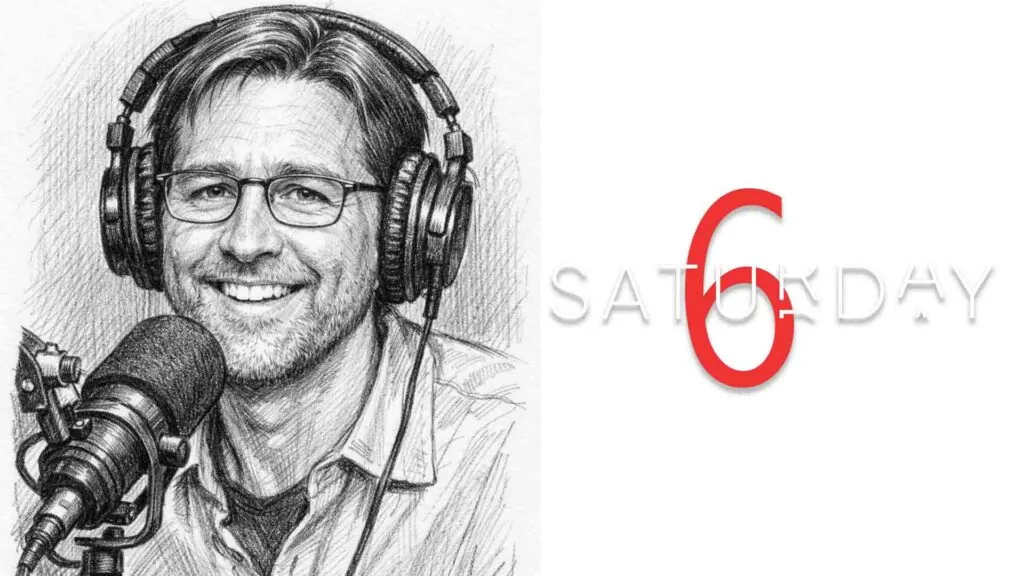Retirement is unbiblical.
Before you think that I’m accusing everyone over the age of 65 of unbiblical behavior, let me lay out the case for why Reformed Christians should be wary of the concept of retirement.
God created men and women to work – He placed Adam in the Garden of Eden to “work it and keep it” (Gen. 2:15). This was an application of the cultural mandate to “be fruitful and multiply and fill the earth and subdue it, and have dominion” (Gen. 1:28). Although the fall into sin made work toilsome (Gen. 3:17-19), God continues to call each and every person to work and to labor for His Kingdom.
Now, this work is not just paid employment. Paid employment is work, but caring for children is work too. Doing chores inside the house and out in the yard is work. Volunteering is work. Serving and ministering to others is work.
Going hard six days a week
Throughout our entire lives we are called to work six days of every week, with the gift of regular rest on every seventh day. And Scripture is full of rebukes for those who shirk work. Proverbs calls upon the sluggard to consider the industrious ways of the ant (Prov. 6:6-11). In the parable of the talents, Jesus condemns the servant who buried his talent in the ground, exclaiming, “You wicked and slothful servant!” (Matt. 25:26). In 2 Thess. 3:11-12, Paul warns against idleness, having heard that some
“walk in idleness, not busy at work, but busybodies. Now such persons we command and encourage in the Lord Jesus Christ to do their work quietly and to earn their own living.”
Beyond just providing for ourselves and our families, a Christian is also called to “labor, doing honest work with his own hands, so that he may have something to share with anyone in need” (Eph. 4:28). We are called to work as we are able, for the good of ourselves, our neighbors, and ultimately for the glory of God.
Worldly view of retirement
But our wealthy, twenty-first-century culture has invented the concept of retirement from work. Public policy and cultural expectations encourage people to work until they are 64 years and 364 days old and then quit working entirely on their 65th birthday. From that day on, our culture promises that life can be one of leisure, full of exotic vacations, games of golf, and doting on grandchildren. It is some sort of horrible, evil thing if people have to work past 65.
It is this caricature of retirement that I suggest is unbiblical. There is no biblical precedent for retiring from work or picking an arbitrary age to stop serving in the Kingdom of God.
Perhaps some will push back and say that rest is good and biblical. And so it is. But perpetual rest on this side of glory is not. The fourth commandment, although the emphasis is on rest, still commands “six days you shall do all your work.” That is the pattern that God gave from creation. Our eternal rest doesn’t start when we reach the age of 65. That rest is only to be found in the life to come.
From one line of work to another
And so, to those who are retired from their paid employment or whose retirement is on the horizon, Reformed Christians should encourage each other to look around for ways to consider laboring in God’s Kingdom as they are able. Perhaps that is paid employment. Perhaps that is looking after grandchildren. Perhaps that is serving more in the church or volunteering in the community. (And it is worth repeating as you are able. The diminished health and energy of old age can and do limit opportunities for service.)
There are any number of suggestions for service that could be made, so I’ll just make one from my personal experience. This is for the older men in the church. My home church in Abbotsford is very blessed to be a young congregation. It is literally overflowing with families and young children. As beautiful as that is, it comes with challenges too. One of those challenges is that many of the potential office-bearers are young and haven’t served as office-bearers before. I just finished my first term as a deacon and, aside from one experienced brother, the other five of us were first-time office-bearers in our twenties and thirties. We all served to the best of our abilities, but doubtless our youth and inexperience shone through many times. It is in situations like these that retired office-bearers have a perfect opportunity to mentor, advise, and encourage younger office-bearers, perhaps going along on visits, joining with a younger office-bearer in prayer over his task, sharing book recommendations, or offering their expertise and advice on difficult situations.
The opportunities for service throughout retirement are endless. But the central point is that we view our entire lives as devoted to service of the Kingdom of God. Not just our first 65 years.












